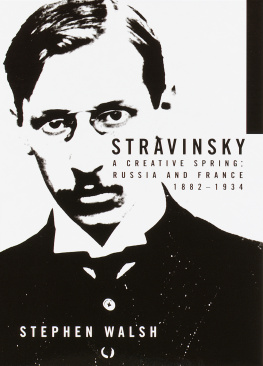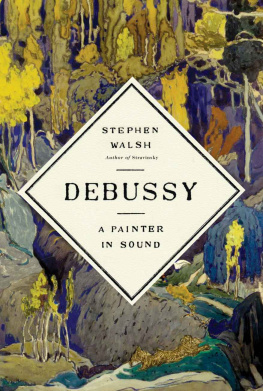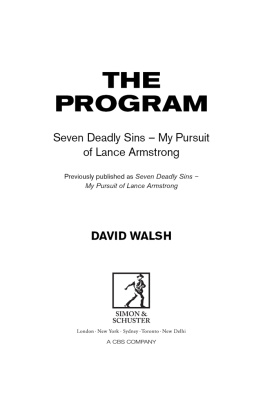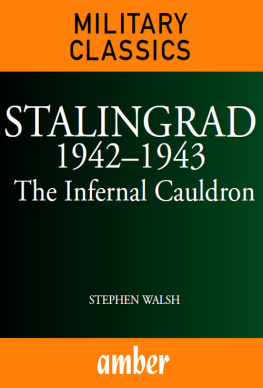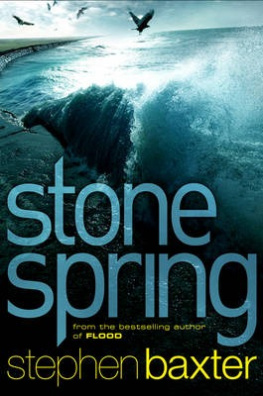Stephen Walsh - Stravinsky: A Creative Spring : Russia and France, 1882-1934
Here you can read online Stephen Walsh - Stravinsky: A Creative Spring : Russia and France, 1882-1934 full text of the book (entire story) in english for free. Download pdf and epub, get meaning, cover and reviews about this ebook. year: 2020, publisher: Knopf Doubleday Publishing Group, genre: Non-fiction. Description of the work, (preface) as well as reviews are available. Best literature library LitArk.com created for fans of good reading and offers a wide selection of genres:
Romance novel
Science fiction
Adventure
Detective
Science
History
Home and family
Prose
Art
Politics
Computer
Non-fiction
Religion
Business
Children
Humor
Choose a favorite category and find really read worthwhile books. Enjoy immersion in the world of imagination, feel the emotions of the characters or learn something new for yourself, make an fascinating discovery.
- Book:Stravinsky: A Creative Spring : Russia and France, 1882-1934
- Author:
- Publisher:Knopf Doubleday Publishing Group
- Genre:
- Year:2020
- Rating:4 / 5
- Favourites:Add to favourites
- Your mark:
- 80
- 1
- 2
- 3
- 4
- 5
Stravinsky: A Creative Spring : Russia and France, 1882-1934: summary, description and annotation
We offer to read an annotation, description, summary or preface (depends on what the author of the book "Stravinsky: A Creative Spring : Russia and France, 1882-1934" wrote himself). If you haven't found the necessary information about the book — write in the comments, we will try to find it.
Stravinsky: A Creative Spring : Russia and France, 1882-1934 — read online for free the complete book (whole text) full work
Below is the text of the book, divided by pages. System saving the place of the last page read, allows you to conveniently read the book "Stravinsky: A Creative Spring : Russia and France, 1882-1934" online for free, without having to search again every time where you left off. Put a bookmark, and you can go to the page where you finished reading at any time.
Font size:
Interval:
Bookmark:
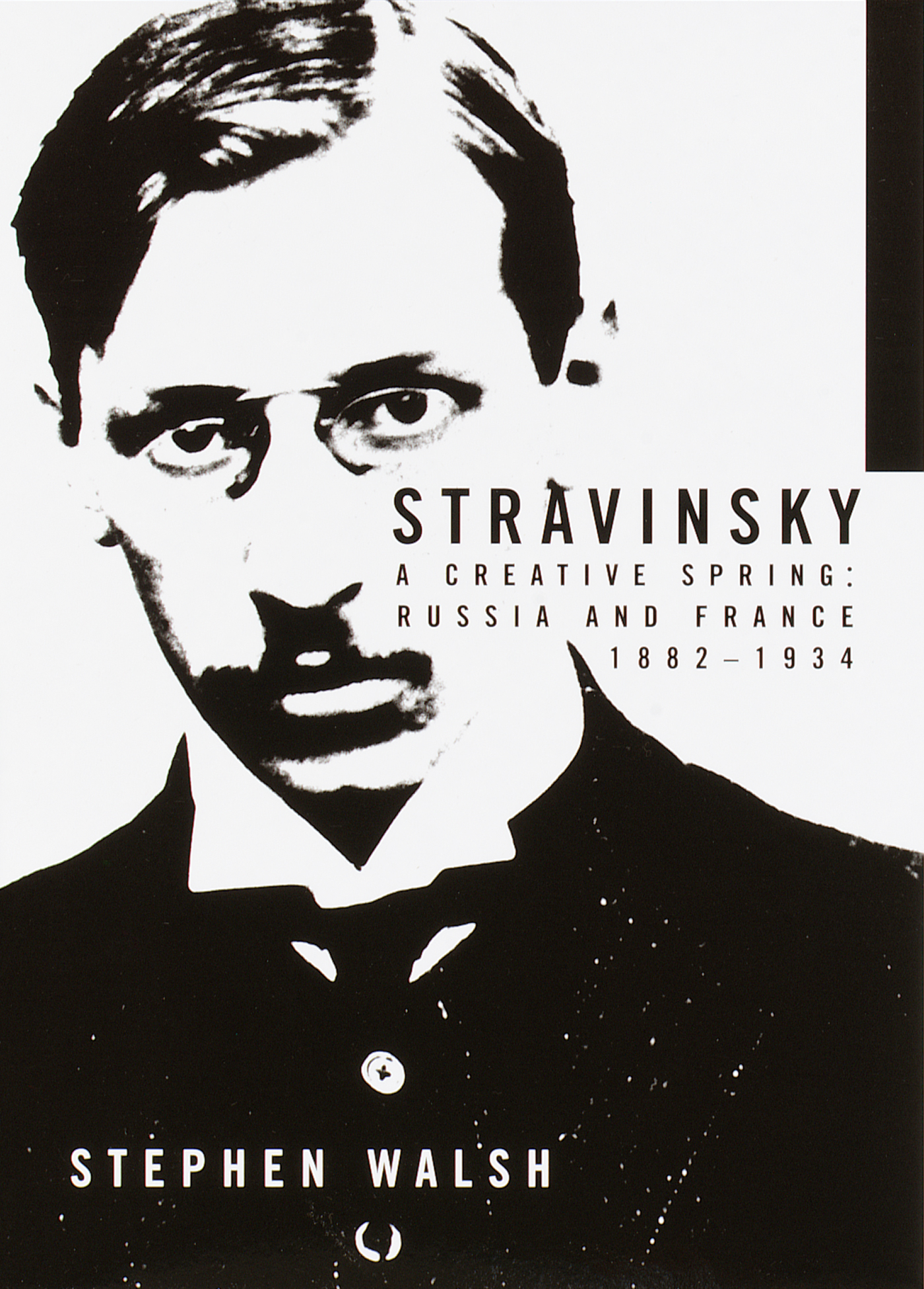
ALSO BY STEPHEN WALSH
The Lieder of Schumann
Bartk Chamber Music
The Music of Stravinsky
Stravinsky: Oedipus Rex
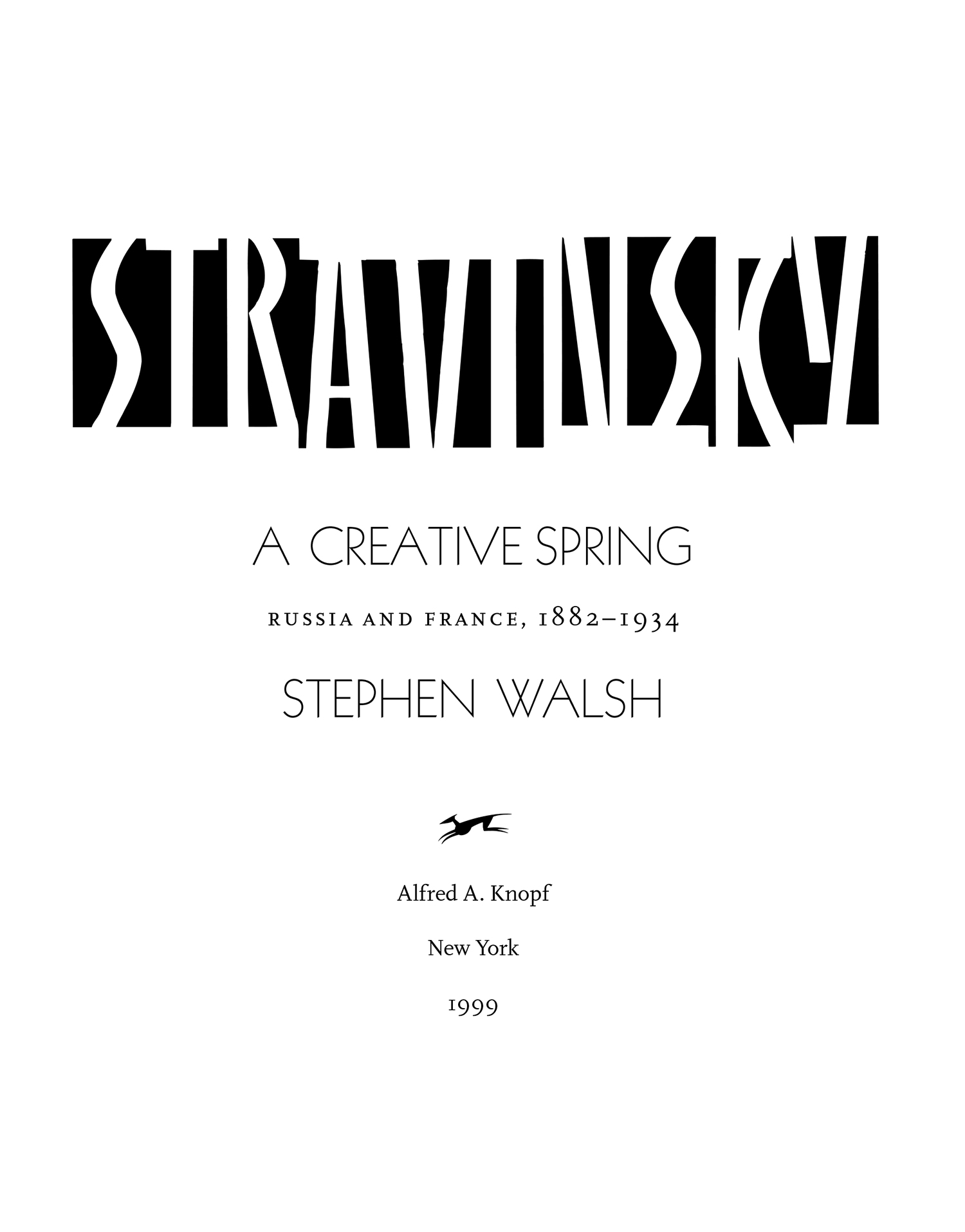
THIS IS A BORZOI BOOK
PUBLISHED BY ALFRED A. KNOPF
Copyright 1999 by Stephen Walsh
All rights reserved under International and Pan-American Copyright Conventions. Published in the United States by Alfred A. Knopf, a division of Random House, Inc., New York, and simultaneously in Canada by Random House of Canada Limited, Toronto. Distributed by Random House, Inc., New York.
www.randomhouse.com
Published in Great Britain by Jonathan Cape Ltd., London.
Knopf, Borzoi Books, and the colophon are registered trademarks of Random House, Inc.
Owing to a limitation of space, all permissions to reprint previously published material may be found immediately following the index.
Hardcover ISBN9780679414841
Ebook ISBN9780593319048
a_prh_5.5.0_c0_r0
For Alexander, Becky, Izzy, and Leo
CONTENTS
INTRODUCTION
A MONG THE VOLUMINOUS writings on Stravinsky by his friend and musical assistant Robert Craft are a pair of articles in which he discusses the problems and feasibility of writing the biography of his former employer. The earlier of the two, StravinskyRelevance and Problems of Biography, starts by making it disconcertingly clear that so far from condoning any personal biography, if Stravinsky had allowed himself to think about it, he would surely have specified in his will that none be written, and he asks, Does anyone have the moral right to use Stravinskys own materials for a biography he would not have wanted?
I quote these somewhat terrifying observations not as an indication of the problems addressed by the present life, but as a kind of purge, knowing that the Stravinsky community will expect nothing less than an answer to Crafts questions, and knowing that I cannot and do not intend to provide it. Nobody acquainted with Craft or his writings will doubt that the questions themselves express, among other things, a certain anxiety about his own place in the biographical process; and perhaps they are even an obstacle erected quite consciously in order to convince himself and others that he himself cannot and should not attempt such a book. The various caveats certainly make perfect sense for him. After all, he was so close to Stravinsky and so intimately a part of his personal, domestic, and professional existence that almost anything he might write about the last quarter of his life would be not biography but autobiography. As for the other three-quarters, his view is blocked precisely by that closeness which it would be the first task of any serious biographer to evade. Craft, in fact (as he himself admits), is the very last person who should write a biography of Stravinsky; and the next last is anyone else who allows himself to be troubled by the anxieties Craft expresses.
Admittedly, if Stravinsky foresaw a psychoanalytical biography, it is not surprising that he feared it and did his best to make it unwritable, by (as Craft says) destroying papers and by (as Craft does not say) reinventing his own past in that wonderful series of conversation books which form such a bright flashing mirror in the eyes of anyone trying to glimpse the realities behind them. But to suggest that it might be immoral to write a simple life because its subject would not have wanted it done is no more than to suggest that only the official biography is morally acceptable, whereas historians know that the official biography is precisely the one that is historically (if not psychoanalytically) worthless. And history is surely crucial to our moral well-being. In any case, whatever else it maybe, the present bookthe first of two volumes on a huge and complex subjectis not official. Nor, by the way, is it psychoanalytical, though it inevitably contains remarks of a more or less psychological kind.
So much for what the book is not. I must now try to say what it is.
The need for a new biography of Stravinsky lies not in any need to illuminate his Freudian relationship with his parents, but in the much more basic need to establish the facts. There are complex reasons why this has never actually been done before. Until quite recently, Russianist musicologists spent most of their time on the nineteenth century, while twentieth-century composers like Stravinsky who left Russia in the emigration were studied by modern specialists who generally did not know Russian and had neither knowledge of nor interest in the particular artistic and social context in which such a composer had grown up. On these matters they turned to the master himself for information, and by and large the picture they formed was the one he wanted formed. Yet Stravinsky had turned against his Russian artistic origins in the twenties, and had begun to cultivate the image of the synthetic international master who owed little or nothing to provincial roots. And by the time he met Robert Craft in the United States after the Second World War, and particularly by the time Craft began to collect Stravinskys reminiscences and table talk in the conversation books of the late fifties and early sixties, his Russian past was little more than a picturesque memory, a source of colorful anecdote, occasionally of special insight, but seldom of accurate record and almost never of proper psychological (never mind psychoanalytical) accounting.
When Stravinsky died in 1971, it was nevertheless Craft who was in a position to chronicle, publish, and annotate the hundred or more boxes of papers the composer left, before they were eventually sold in 1983 to Paul Sacher in Basle, where they now reside. Craft duly published a large and fascinating documentary biography, a diary, three volumes of letters, two scrapbooks of photographs and other documents, and a heavily footnoted selection of diaries and letters of the composers second wife, Vera, as well as a stream of articles and reviews, all of which established beyond question his unique authority as arbiter of what did and did not wash in Stravinsky biographical studies. In all this editorial work, Craft showed an encyclopedic grasp of contextual detail, a disconcerting but often highly stimulating penchant for lateral or associative thinking, an acute musical intelligence, and a mastery of English prose that is, alas, all too rare among those who write about music. What it did not showand this must now be saidis a talent for factual or even textual accuracy. Admittedly the editing of Stravinskys correspondence presented unusual problems. Not only was it as voluminous and wide-ranging as one might expect of a major artist who had had three nationalities and lived for nearly nine decades in four different countries, but it was in four main languages, not all of which the editor himself was able to read. For much of the actual translating, he was frankly dependent on others, some of whomto judge from the resultswere far from equal to the task. But how is one to account for much in these volumes that is purely editorial in character, the unexplained omissions, the wrong datings, the confused or reconstructed texts? These points need not be labored here, since they come up time and again in my own annotations of what follows. It only needs to be clearly stated that the body of critical English-language texts which are widely used and quoted as the most basic sources on Stravinskys life and music are in fact textually and therefore materially unreliable to the point of being at times positively misleading in their presentation of the facts.
Font size:
Interval:
Bookmark:
Similar books «Stravinsky: A Creative Spring : Russia and France, 1882-1934»
Look at similar books to Stravinsky: A Creative Spring : Russia and France, 1882-1934. We have selected literature similar in name and meaning in the hope of providing readers with more options to find new, interesting, not yet read works.
Discussion, reviews of the book Stravinsky: A Creative Spring : Russia and France, 1882-1934 and just readers' own opinions. Leave your comments, write what you think about the work, its meaning or the main characters. Specify what exactly you liked and what you didn't like, and why you think so.

